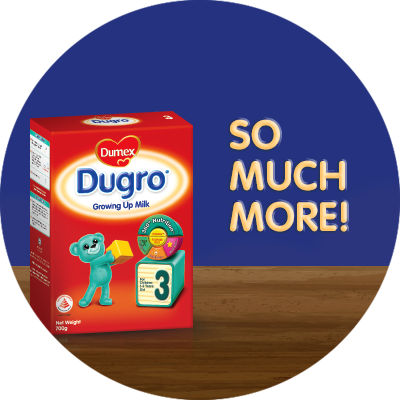Breastfeeding is the best for babies and a healthy diet / maternal nutrition is important when breastfeeding. A decision not to breastfeed can be difficult to reverse. Infant formula is suitable from birth when babies are not breastfed. It is recommended that all formula milks be used on the advice of a doctor, midwife, health visitor, public health nurse, dietitian, pharmacist, or other professional responsible for maternal and child care and the financial implications should be considered. All preparation and feeding instructions should be followed carefully as inappropriate preparation could lead to health hazards.
Picky Eaters
Just when you've finally found a food you can count on your toddler eating they begin to reject it. That's typical for a toddler, but mealtimes can become a real ordeal when your toddler is fussy.
Approximately half of all toddlers have fussy eating habits, which means there's a one in two chance of yours becoming a picky eater. So remember this is normal - and you're not alone! These tips might help you through these 'trying' times!
Some tips to encourage fussy eaters
- Initially, organise your toddler’s meals around the times of the day they are hungry. A natural pattern will develop which you can then begin to set a routine to.
- Let your child eat at their own pace and don’t try and insist that the plate is cleared. Rushing your toddler through a meal puts pressure on them which can reduce their appetite and come across as fussiness.
- If your toddler has refused a food once, don’t give up. You can try reintroducing it again in a few days time. Some new foods need up to 15 tries before they’re accepted.
- Make sure their eating environment is kept calm and they’re concentrating on their meal – so no TV!
- Stick with small portions to start with and only give more if they’re still hungry.
- A vegetable aversion is one of the most common food fads in toddlers - and one that causes parents a lot of stress. One quick fix is to ensure that you include lots of different fruit in their diet.
- Having family meals with your toddler can really help if their natural hunger pattern co-insides with your regular mealtimes. Even though every toddler is different, some young children copy the behaviour of other people, so if you are enjoying a healthy meal, your toddler may well watch and learn from what you’re doing.
- Give your toddler praise when they finish a meal or enjoy a healthy snack. It’s also a good idea to talk about the food you enjoy. Things like ‘yum yum this apple is gorgeous’ or ‘this spinach is great’ to emphasise the foods you’d like them to enjoy.
The most important thing is to try to be patient! It might seem like your toddler’s tastes are changing by the day, but it’s important to persevere and make sure they get a healthy, balanced and nutritious diet.
Disclaimer: All content on this Website is provided solely for informational purposes and is not intended as a substitute for medical and/or other professional advice for your specific condition. Please do not disregard medical and/or other professional advice or delay seeking it because of something you have read on this Website. Always seek medical advice before starting any new treatments.


Ask Our Careline
Whatever’s on your mind, we’re here to help




